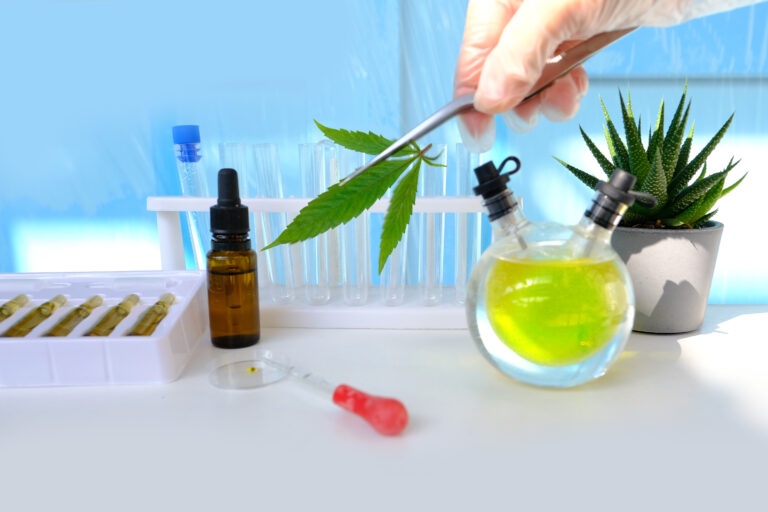Delta-8 THC: The Legalities and Health Risks
From January through July 2021, 660 exposure cases of delta-8 THC were called in to national poison control centers; 18% require hospitalization. In the 3 years prior to that, only 1 case was reported. What is delta-8 THC, and why did cases jump so radically?
Delta-8 THC (Delta-8 tetrahydrocannabinol) is a psychoactive substance produced naturally by the cannabis (marijuana and hemp) plants. With the 2018 Farm Bill legalizing the production of hemp, some producers have found a way to use simple chemistry – that dates back to the 1960s – to synthetically convert CBD extracted from hemp into delta-8-THC.
This increased production of a cannabis psychoactive and the escalation of health issues, for which FDA itself received 22 adverse event reports (December 2020-July 2021) with 64% resulting in an emergency room visit or hospitalization, led to the issuance of a Consumer Update from FDA discussing Delta-8 THC health risks and the reasons for concern:
- Delta-8 THC products have not been FDA evaluated or approved for safe use. Some concerns include variability in product formulations and product labeling, other cannabinoid and terpene content, and variable delta-8 THC concentrations.
- Some products may be labeled simply as “hemp products,” which can mislead consumers who associate “hemp” with “non-psychoactive.”
- Delta-8 THC has psychoactive and intoxicating effects, similar to delta-9 THC – the component responsible for the cannabis “high.”
- Adverse effects can include vomiting, hallucinations, trouble standing, and loss of consciousness.
- Production often involves the use of potentially harmful chemicals to ramp up the naturally low concentrations of delta-8 THC in hemp, with additional chemicals needed to convert other cannabinoids in hemp, like CBD, into delta-8 THC.
Additionally, as stated in a recent ACS article, most products sold as delta-8-THC are not pure, as they typically contain a high percentage of delta-8-THC and small amounts of other cannabinoids, including delta-9-THC and reaction by-products, increasing the potential for adverse events and health risk.
But a further issue lies in the legal regulatory status of delta-8-THC products. While a number of states are beginning to ban the sales of delta-8-THC products, the ACS article states that “as long as they are derived from hemp and contain no more than 0.3% of delta-9-THC on a dry-weight basis—the limit under federal law—many lawyers and hemp industry officials consider them legal.”
Others, however, argue the opposite, stating that Congress didn’t intend to legalize psychoactive or intoxicating compounds in the 2018 Farm Bill, that the distinction between intoxicating marijuana and nonintoxicating hemp, was made clear with a line drawn so that nonintoxicating hemp would be legal but intoxicating marijuana federally illegal. So, while the sale of delta-8 may not violate the letter of law, “it definitely violates the spirit.”
Additionally, the Farm Bill explicitly preserved FDA’s authorities over hemp products. So, while the production of the molecule of delta-8 may be legal under the Farm Bill, once it is marketed for ingestion, it becomes a food, drug, dietary supplement, or medical device (depending on the method of delivery) under the auspices of FDA, and FDA does not currently recognize it as any of these. Thus, it is essentially being produced without regulatory oversight and limited laboratory testing, which further increases the risk. Given this semi-illicit nature of production, consumer risk is likely higher as the products are made in largely unlicensed and uninspected facilities.
The legalizing of hemp came with numerous legal and regulatory challenges, and the increasing production of psychoactive delta-8 THC products from industrial hemp is continuing to stir up those challenges and create controversy.






